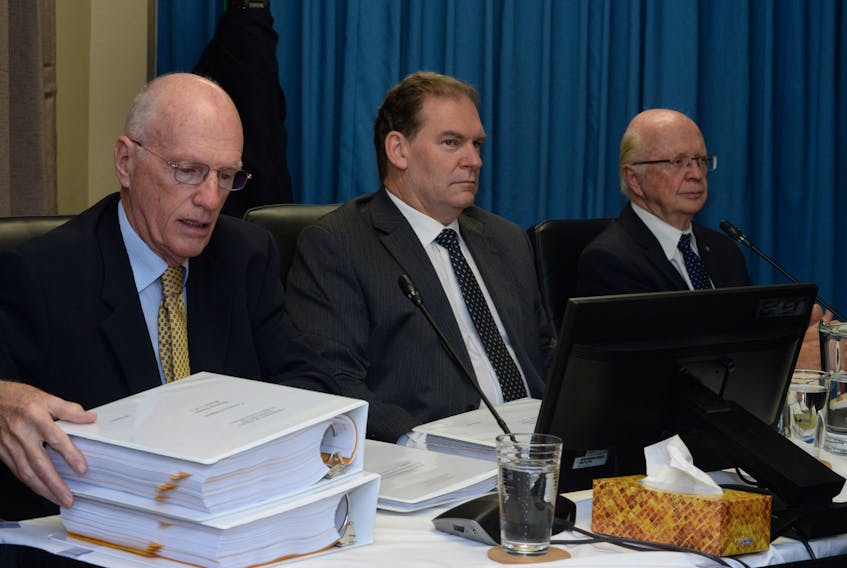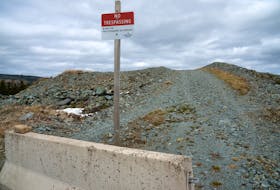From word choices to final edits, the language used in an October 2012 report by Manitoba Hydro International (MHI) to the Government of Newfoundland and Labrador was a focus of Muskrat Falls Inquiry testimony Tuesday.
Paul Wilson, Mack Kast and Al Snyder were on the stand for a second day, having contributed to the “cumulative present worth” (CPW) analyses looking at the “isolated island” power development option for Newfoundland and Labrador versus the option of a hydroelectric development at Muskrat Falls.
It was confirmed their final report was circulated in a draft form to the government, before it was edited again and released to the public.
But lawyer Helga Van Iderstine, representing MHI, asked about any changes. She asked what the response would have been from the MHI team to a proposed change altering the findings.
“No,” Wilson said, in response to the idea.
“No being?” she asked.
“No, we won’t accept those changes,” he said.
The panel was asked more than once throughout the day if they were pressured by Nalcor Energy, or by the provincial government, to change their report. All three said they were not pressured.
“I may have corrected some of the English in it, if you will, but not the technical matter,” Snyder said at one point early in the day, while all three said they would not put their professional reputations at risk by misrepresenting their review results.
Wilson signed off on the final report. He acknowledged changes to language used at times — including to take the positive angle on statements, versus a negative — but couldn’t pinpoint what prompted the changes. He continued to have no answer to the question of why certain comments — including reference to “P50” cost estimates — did not make it into the final report.
He could not recall questions that might have been asked about the team’s findings by then-premier Kathy Dunderdale, cabinet minister Jerome Kennedy or assistant deputy minister Charles Bown, and potentially others, in a meeting in Toronto before the report was released. He could not say for certain who was at that meeting.
During their cross-examination by lawyer Dan Simmons, representing Nalcor Energy, they confirmed the MHI team was in contact with members of Nalcor Energy’s Muskrat Falls project team during their review. But the contact was considered by the MHI team to be required to complete their work. A reference on Monday to a delay in information from Nalcor was confirmed by the consultants to be a one-day issue. No further issues with documentation were noted in response to questions.
The MHI team said they had the information needed for their report as it stood.
While given the opportunity to change their positions, they repeated earlier testimony that they were not aware of a report suggesting $500 million should be available from the province in a reserve to cover “strategic risk” for the Muskrat Falls project, above and beyond existing cost estimates at the time. Considering strategic risk – including changes in contractor performance during construction or changes in the scope of work for individual contracts while construction was in progress – was, by direction, not covered in the MHI review.
And they repeated they were not aware of an assessment suggesting there was near-certainty the project would not meet its construction schedule for first power from the hydro dam. Since schedule delays affect the project’s final cost, and are factored into the “CPW” work, they said if they had known about that assessment, their report would likely have been different. Exactly what it might have said hasn’t been established, although auditors with Grant Thornton have testified that the MHI team might not have ultimately recommended Muskrat Falls to be the least-cost option for power.
Related stories
Manitoba Hydro didn’t weigh Muskrat Falls business case









